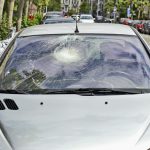How to find a good deal on a used car
Friday, 7 September 2012 6:00 PM

Buying a used car can save you thousands
Opting to buy a used car instead of a new one is a great way to save money, but you may be deterred after hearing some of the many horror stories about second hand car dealers. However, there are some simple steps you can take to ensure you get a reliable vehicle for a bargain price.
As with any purchase, the key to getting it right is being prepared to do plenty of research and then employ some common sense when making a final decision. If you do that, you can take advantage of the huge savings available by opting for a used car rather than a new one.
Decide what you need
The first step towards securing a bargain is working out what type of vehicle you actually need. It does not matter how attractive a deal on a particular model is if it won't do the job you want.
Think carefully about practical factors such as boot space, room for children or dogs and fuel economy, and decide on your must-haves. That will allow you to draw up a shortlist of cars it is worth looking at.
Research values
You need to know the market value of both the car you are trading in and the various models you are considering buying. This will ensure you can identify which deals represent good value and also give you some confidence when it comes to negotiating the final price.
Glass's Guide and What Car? magazines both feature lots of information about used car values, but you should remember these are ballpark figures and things such as mileage and condition will affect the price you pay or receive. Internet searches of the stock on offer at car supermarkets and local dealers will also give you a good idea of how much you will need to spend.
Dealer or private seller?
There are thousands of honest private sellers offering mechanically sound cars they have a genuine reason for offloading, but what happens if you are unfortunate enough to buy from one of the less scrupulous ones? What sort of post-sales customer service can you expect?
Generally, it is safer to buy from a reputable car supermarket or established dealer, as they will have a complaints policy to follow. They will also be aware of the potential damage to their reputation and business from unhappy customers.
Negotiate
Once you have found a vehicle you are interested in, don't just assume you will have to pay the asking price. Dealers are used to negotiating – both on vehicles they are selling and ones they are taking in part-exchange – and most include some wriggle room in their initial prices to allow them to do so.
You will, however, need to be realistic about how much you can expect to bargain the seller down. Typically, dealers have much less room to manoeuvre on price when selling second hand cars than new ones, as the values are lower and there is no VAT on used vehicles.
Used car finance deals
One mistake buyers often make is to base their decision on the purchase price, rather than the total amount the transaction costs once interest payments are added. A good used car finance deal with a competitive rate can help to keep the amount you spend down.
It is worth speaking to the car supermarket or dealer about their finance packages, as they are likely to offer hire purchase and Personal Contract Purchase deals not available from the bank. They can help you to manage your budget more easily and may allow you to afford a newer vehicle than you had thought possible.
Mechanical and car history checks
A reputable dealer will have carried out a mechanical inspection before putting a car on sale, and some even give their stock a full service ahead of customers picking them up. If you have any doubt about this or just want added peace of mind, arrange for an independent check to be carried out to ensure you are not buying a vehicle that will give you nothing but problems.
Similarly, it is sensible to organise your own car history check – sometimes referred to as an HPI check – to make certain the seller actually owns the vehicle and that it has no outstanding finance on it. The report will also tell you whether it has ever been written off, stolen or clocked.



































